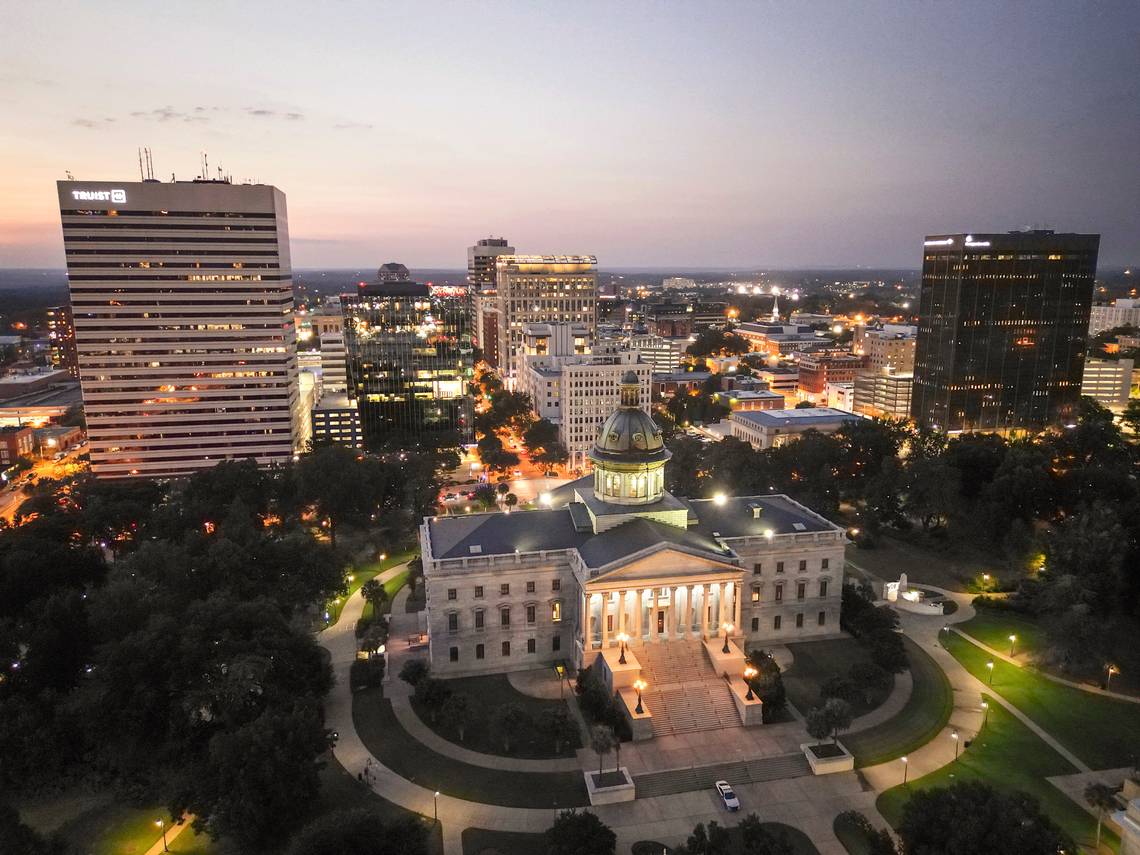As a task force is charged with trying to figure out the origins of a $1.8 billion account and which agencies or trust funds the money belongs, some voices are already saying how the money should be spent.
But lawmakers may never be able to decide where that money will go because the cash already may have been obligated for a specific use.
The existence of the account was disclosed to lawmakers in October by Comptroller General Brian Gaines, who was appointed to the job last year to replace Richard Eckstrom.
The account was created in 2017 as a clearing account as the state switched to a new accounting system. After money was assigned to agencies, $1.5 billion was left in the account without a known home. The account eventually grew to $1.8 billion of homeless cash.
Gov. Henry McMaster has asked a task force with members from the Department of Administration, the treasurer’s office, comptroller general’s office and the state auditor’s office to determine the origins of the money. McMaster asked them to finish their work by July 1.
McMaster has cautioned against spending the money now, urging the importance of first determining who the cash belongs to.
It hasn’t stopped politicians to call for the money to be rebated to taxpayers.
Former state Rep. Kirkman Finlay, a Republican who is seeking his old seat in the House, has made the account a part of his primary campaign messaging.
He sent out a campaign mailer depicting a rebate check for $1,250 with a memo line “inflation relief – found surplus money returned.”
“People are suffering from inflation — Columbia politicians should stop playing games right now!” the Richland County Republican says on the flier. “Give this money back to the people.”
In the House, 20 Republican lawmakers, led by state Rep. Adam Morgan, R-Greenville, have signed on to legislation to rebate the money back to taxpayers if the money is certified by the Board of Economic Advisors.
“If they can lose $1.8 billion and not notice for years, the taxes are way too high!” Morgan posted on social media platform X, as he runs for the U.S. House of Representatives in the 4th Congressional District.
The legislation was proposed April 10, which was too late in the session for it to realistically to pass before the end of session on May 9.
U.S. Rep. Jim Clyburn, D-Santee, pointed to the $1.8 billion account of “unobligated money” and the state’s $1.6 billion budget surplus as a “once in a lifetime” opportunity to spend money on South Carolina State University, his alma mater.
South Carolina has underfunded S.C. State University by $469.9 million over the last 30 years.
“Our current fiscal condition provides South Carolina with an opportunity to repair this fault,” Clyburn wrote in an op-ed in the Post and Courier.
However, none of these suggestions can happen now, and potentially may never occur, because the money may already be obligated.
“It’s not surplus funds. It’s not money that came into the treasury (and) did not have a home. These were monies that were lawfully placed within state agencies, within trust accounts, within the retirement system. That’s where those monies rightfully belong, and we have to do the analysis,” state Sen. Larry Grooms, R-Berkeley, said in an interview with S.C. ETV.
Grooms, in an interview with The State, said it would be irresponsible to rebate it back to taxpayers.
The money has already been obligated for other uses such as investment pools for municipalities and counties, retirement accounts, highway trust funds or college savings accounts, said Grooms, who is leading a Senate investigation into the state’s accounting issues.
Senators investigating the existence of the $1.8 billion said the money could be federal dollars sent to South Carolina for specific purposes, such as from the highway trust fund. Loftis has touted the account has generated about $225 million in interest earnings money the Legislature has spent. However, there’s fear if money was generated from federal dollars, the interest may be owed back.
Budget writers in both chambers also have proposed spending $4.2 million in the upcoming budget for the Department of Administration to hire an outside auditor to conduct a forensic audit and for the treasurer’s office to comply with the audit, which may take a year to complete.
“It’s going to take them some time,” Grooms said in an interview with S.C. ETV. “A lot of documentation has to go back into when the treasurer lost track of these funds, where do they rightfully belong, and then we’ll decide. If they are surplus funds, then we could make a decision on what to do with those, but under law, they can’t be surplus funds, they already had been appropriated.”
